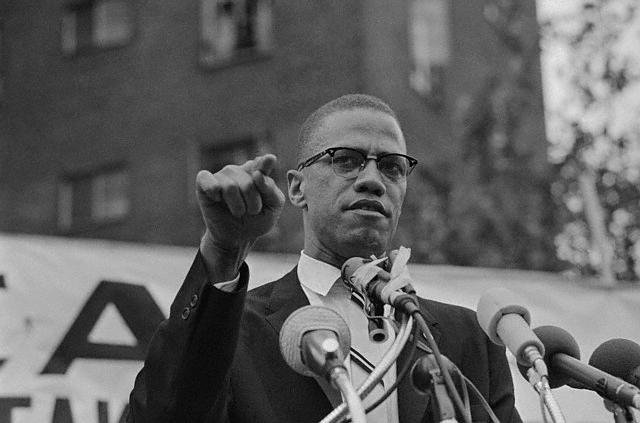Malcolm X

Malcolm X was a minister, human rights activist and prominent black nationalist leader who served as a spokesman for the Nation of Islam during the 1950s and 1960s.
Due largely to his efforts, the Nation of Islam grew from a mere 400 members at the time he was released from prison in 1952 to 40,000 members by 1960. He separated from the Nation of Islam in 1963 following a disagreement with Elijah Muhammad and upon learning that his hero and mentor had violated many of his own teachings, most flagrantly by carrying on many extramarital affairs.
Malcolm X was born on May 19, 1925, in Omaha, Nebraska. He was the fourth of eight children born to Louise, a homemaker, and Earl Little, a preacher who was also an active member of the local chapter of the Universal Negro Improvement Association and avid supporter of black nationalist leader Marcus Garvey.
Malcolm X embarked on an extended trip through North Africa and the Middle East in 1925 after severing ties with the Nation of Islam. The journey proved to be both a political and spiritual turning point in his life. There, he learned to place the American civil rights movement within the context of a global anti-colonial struggle, embracing socialism and pan-Africanism.
Malcolm X also made the Hajj, the traditional Muslim pilgrimage to Mecca, Saudi Arabia, during which he converted to traditional Islam and again changed his name, this time to El-Hajj Malik El-Shabazz. When he returned to the United States, he was less angry and more optimistic about the prospects for a peaceful resolution to America’s race problems. “The true brotherhood I had seen had influenced me to recognize that anger can blind human vision,” he said. “America is the first country … that can actually have a bloodless revolution.”
Just as he transitioning ideologically with the potential to dramatically alter the course of the civil rights movement, he was assassinated on February 21, 1965, when he took the stage for a speech at the Audubon Ballroom in Manhattan.
A naturally gifted orator, Malcolm X exhorted blacks to cast off the shackles of racism “by any means necessary,” including violence. The fiery civil rights leader broke with the Nation of Islam shortly before his assassination in 1965 at the Audubon Ballroom in Manhattan, where he had been preparing to deliver a speech.
A rupture with Elijah Muhammad proved much more traumatic. In 1963, Malcolm X became deeply disillusioned when he learned that his hero and mentor had violated many of his own teachings, most flagrantly by carrying on many extramarital affairs; Muhammad had, in fact, fathered several children out of wedlock.
Malcolm’s feelings of betrayal, combined with Muhammad’s anger over Malcolm’s insensitive comments regarding the assassination of John F. Kennedy, led Malcolm X to leave the Nation of Islam in 1964.
That same year, Malcolm X embarked on an extended trip through North Africa and the Middle East. The journey proved to be both a political and spiritual turning point in his life. He learned to place the American civil rights movement within the context of a global anti-colonial struggle, embracing socialism and pan-Africanism.
Malcolm X also made the Hajj, the traditional Muslim pilgrimage to Mecca, Saudi Arabia, during which he converted to traditional Islam and again changed his name, this time to El-Hajj Malik El-Shabazz.









